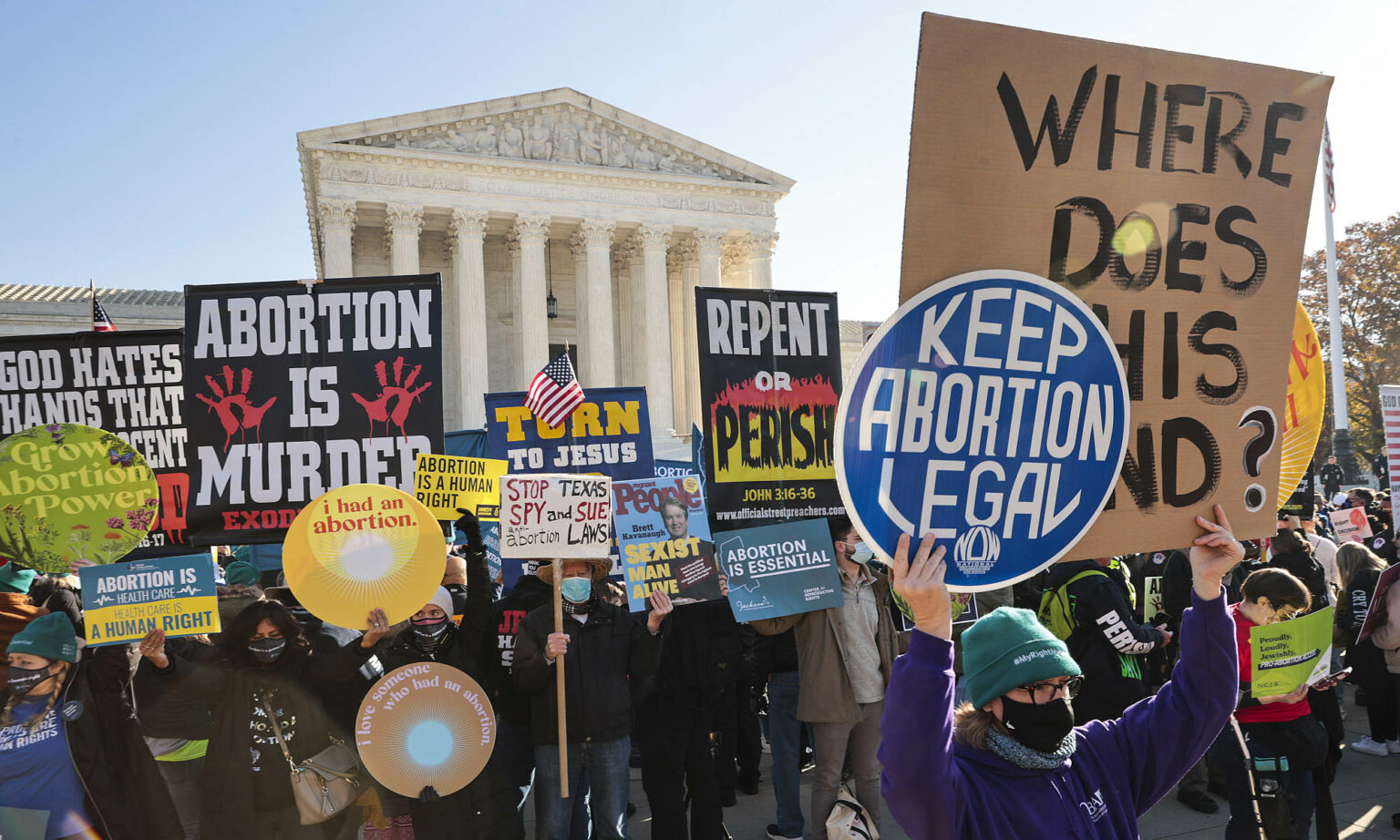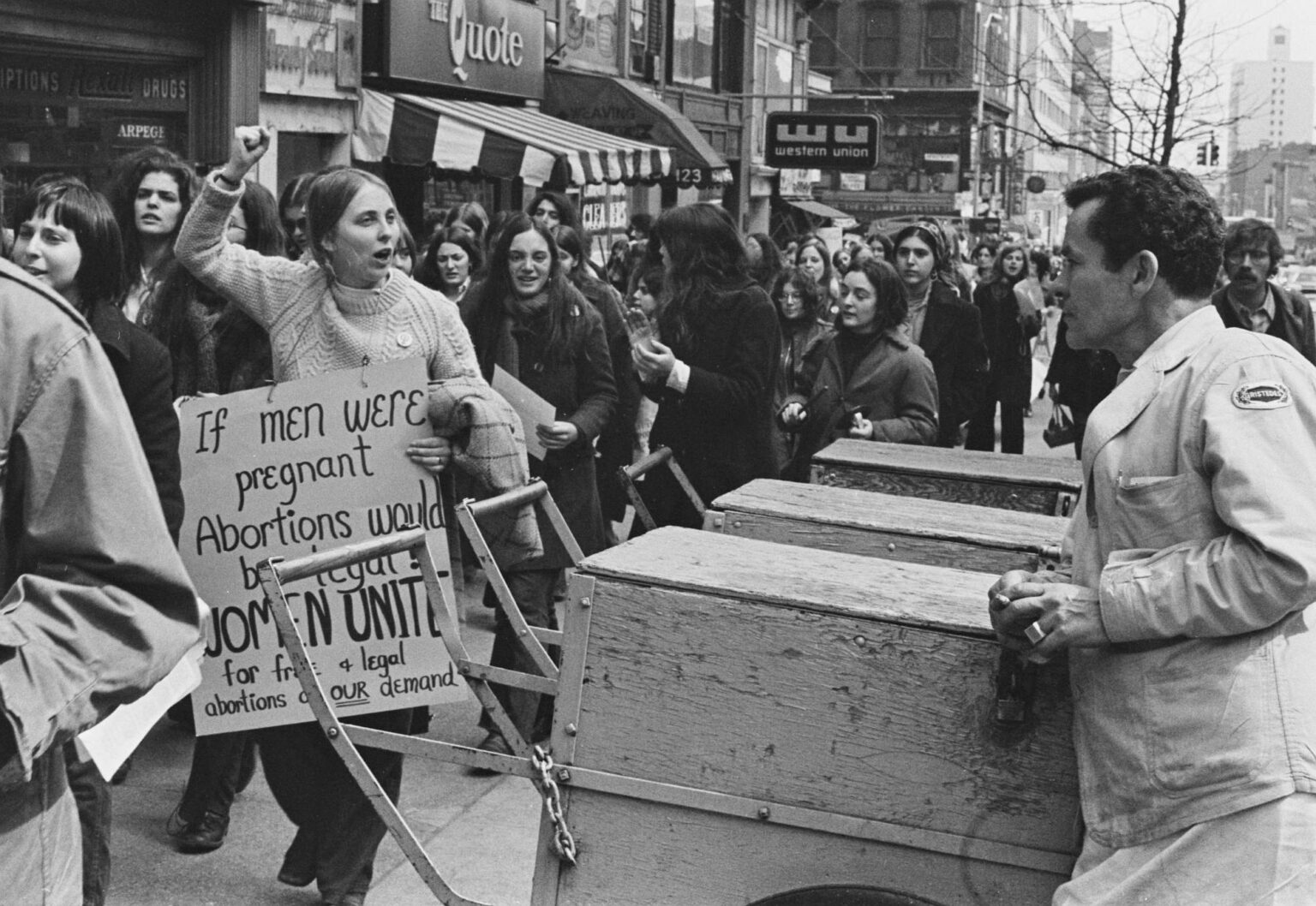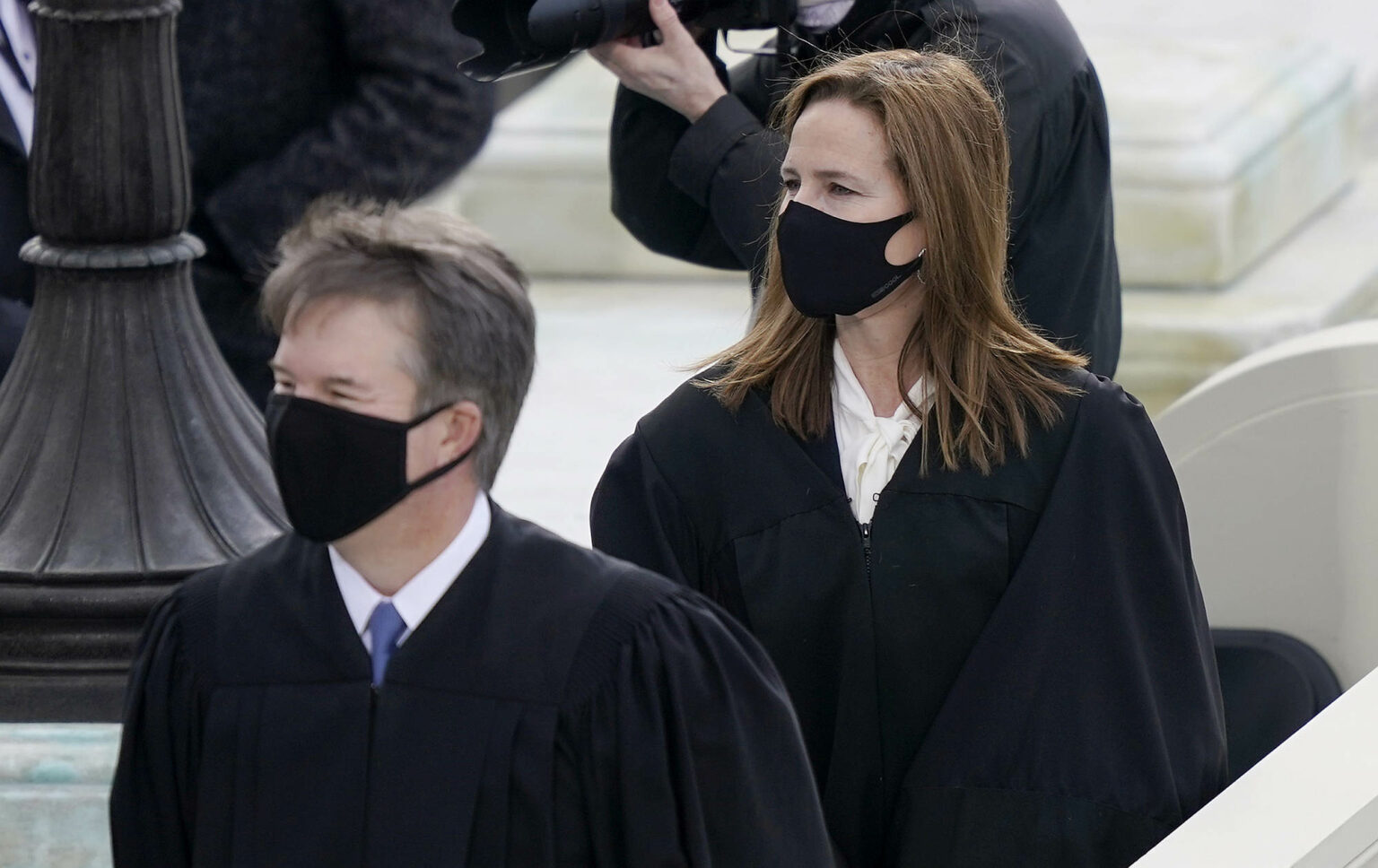
Long-read
After Roe: a dystopian future for American women
Abortion could soon become a crime throughout America.
Want to read spiked ad-free? Become a spiked supporter.
I remember where I was when Roe v Wade was decided, establishing a constitutional right to an abortion, and I remember a breathtaking sense of relief and liberation. I was a law student in my early twenties in 1973, and while I had access to birth control, I deeply resented a legal regime that forced women to endure unwanted pregnancies. I remember when I first learned that abortions were illegal. I was about 12 years old, watching a TV show with my mother about the trial of an abortion doctor, and I remember my outrage and disbelief when she explained that women weren’t free to terminate their pregnancies.
Lately, outrage has devolved into resignation. Roe v Wade will soon be history, but its death has been long foretold. Abortion providers have been under fire for years (sometimes literally), access to abortion has dramatically diminished, and the Supreme Court has become increasingly anti-choice. The three new justices appointed by Donald Trump and the Republican Senate were chosen partly for their opposition to abortion rights and now form a strong majority with the other three Republicans on the court.
In Dobbs v Jackson, now before the Supreme Court, the justices have their vehicle for eviscerating abortion rights. Dobbs is a challenge to a 2018 Mississippi law generally banning abortions after 15 weeks, in clear violation of the rights established in Roe and subsequent cases that allow abortions until fetal viability. The justices heard arguments in the case on 1 December, and will hand down a decision this coming spring. They seem most likely to reverse Roe entirely, giving the states absolute power to ban abortions absolutely, but they could settle for an arguably political interim ruling severely limiting abortion rights without formally eliminating them. Either way, a woman’s reproductive rights will depend on where she lives. Only in blue (Democratic) states will women have access to safe, legal abortions.
This will not be an entirely new development. Women’s access to abortion has always been shaped partly by their geography, religion and regional cultures, as well as their economic status. Before Roe, when abortion was generally illegal, middle- and upper-class women in my suburban New York hometown found family doctors who discreetly provided abortions to patients they trusted. Or they went to Puerto Rico. (I remember when ‘she went to Puerto Rico’ was code for ‘she had an abortion’.)

Post-Roe, abortion access has still been quite limited in right-wing Republican states, but soon it will be completely eliminated, and providing abortions or assisting women in obtaining them may become criminal offences. The Guttmacher Institute estimates that 26 states will ban abortion once Roe is reversed and red-state legislators are unleashed. We can hope that medication abortions will replace coat hangers for desperate women who cannot obtain surgical abortions in their states or afford to travel. But obtaining abortion pills will require knowledge that they exist, as well as a network for obtaining them.
Poor women in red states in the south, mid-west and west will suffer most, forced to give birth in places where they and their children are most at risk. Generally, the US has the highest maternal mortality rate among 11 developed nations, and, as the New York Times reports, ‘many of the states that would ban abortion also have the least social support for women and children, like robust access to family planning services or paid family leave, and have high levels of child poverty’. Mississippi, the state asking the Supreme Court to overturn Roe v Wade, has the highest infant-mortality rate in the country and the 15th highest maternal-mortality rate.
The hypocrisy of self-proclaimed pro-life advocates who oppose welfare programmes providing pre- and post-natal care, early-childhood education and family leave policies has long been evident. As former congressman Barney Frank quipped years ago, anti-choice Republicans believe ‘life begins at conception and ends at birth’. These days, as anti-abortion activists celebrate the coming withdrawal of a constitutional right to abortion, some are acknowledging an obligation to care for a new wave of unwanted children. But apart from the limited disbursement of diapers and baby clothes, the help they extend will be minimal. Social welfare, health and poverty programmes aimed at lower-income Americans have long been advanced by Democrats but condemned by Republicans as socialism. In Mississippi, the poorest state in the nation, the avowedly pro-life governor has refused to extend federally funded Medicaid benefits to his poor and working-class constituents.
What will become of the post-Roe babies? Justice Barrett, a mother of seven, including two adopted children, opined that adoption and relatively new safe-haven laws, allowing women to surrender infants anonymously, would ease the economic burdens of unwanted pregnancies. Perhaps. But they won’t make pregnancy itself any less burdensome for wage-earning women who lack pregnancy leave and struggle to support children previously born. Nor will they make pregnancy any less risky for women with pre-existing medical conditions and inadequate healthcare. And they will not justify the intolerable deprivations of liberty inherent in laws requiring women to remain pregnant against their will.
Would I feel differently if I fervently believed that abortion was infanticide, as many on the anti-choice side do? Of course. But I hope I would recognise the need for compromise and respect for the rights of women in a pluralistic society with a professed commitment to individual autonomy.
In a different era, in much less divisive and much more rational times, compromise might be possible. Indeed, Roe v Wade was a compromise, recognising a ‘qualified right’ to terminate a pregnancy before fetal viability. Roe guaranteed women virtually unmitigated abortion rights in the first trimester, while giving the states limited regulatory authority over procedures in the second trimester and the power to prohibit abortions in the third trimester, except when they were necessary to preserve the mother’s life or health. This framework has been frequently criticised by right and left, but it was a noble effort and a lifesaver for millions of women.
Today, in our increasingly uncivilised country, where people come to blows over public masking, there will be no regulatory compromises on abortion rights. Reversing Roe will only exacerbate our increasingly violent divisions when the power to prohibit or provide abortions is transferred to the states, and local activists go to war. The Supreme Court should remain neutral on abortion rights, Justice Kavanaugh ominously asserted, deferring to the states and the democratic process.

That’s one way of denying that abortion rights are constitutionally guaranteed; constitutional rights are not subject to repeal by legislative majorities. But there’s a deeper and more chilling flaw in Kavanaugh’s ‘reasoning’. In red states nationwide, Trumpist neo-Republicans are dispensing with democratic processes – not just limiting ballot access but also subjecting the counting of votes and certification of election results to their own partisan control. Pro-choice advocates hoping for an effective post-Roe backlash of outraged female voters may well be disappointed. The electoral salience of abortion rights is unclear: the economy may be the most important issue in the coming 2022 Midterms. And even if the reversal of Roe does motivate critical masses of pro-choice voters, they might be shut out of the voting booth by restrictions targeting Democratic constituencies, or their votes, once cast, might not be counted.
Abortion rights, like other rights and liberties, will be the casualties of Trump’s takeover of the Republican Party and his fantastic lies about rigged elections, meaning any election that he or his acolytes lose. In the short term, for the next few years, blue states will continue to provide and probably expand access to abortion. But as they take over elections in key states, Trumpists are poised to retake Congress and the White House in 2024. They may then pass federal laws criminalising abortion, which the ‘neutral’ Supreme Court will uphold. Then abortion will be a crime throughout the United States.
Besides, the court may not remain even nominally neutral on abortion rights for long. Anti-abortion activists are aggressively advancing theories of fetal personhood that imbue a fetus at any stage of development with constitutional rights potentially conflicting with the rights of the mother. As one anti-abortion group stated in an amicus brief to the Supreme Court, cited on ‘Scotusblog’, ‘“a preborn human being, no matter how small, is a person under the Fourteenth Amendment” and is therefore entitled to equal protection’. Notions of fetal personhood have always been implicit in the view of abortion as murder, imposing legal duties of care on women and potential liability for miscarriages. For instance, an Oklahoma woman was recently convicted of manslaughter and sentenced to four years in prison for a miscarriage blamed on her drug use. Prohibitions on abortion may only be a first step for anti-abortion activists who want the state to police women’s conduct during pregnancy.
Even some forms of contraception could be at risk if or when a fetus is considered a person under the Fourteenth Amendment. It’s worth noting that contraceptive rights are not much more established than abortion rights, which are about to be abolished. Oral contraceptives came on the market in the early 1960s, but it was not until 1965 that the Supreme Court recognised the right of married couples to use birth control, and not until 1972, only one year before Roe v Wade was decided, that this right was extended to unmarried people.
Rights are fragile. In merely 50 years – a short time in the life of a country – reproductive choice has come and gone. The counter-revolution advances and for millions of American women, the future looks dystopian.
Wendy Kaminer is an author, a lawyer and a former national board member of the American Civil Liberties Union.
Pictures by: Getty Images.
Who funds spiked? You do
We are funded by you. And in this era of cancel culture and advertiser boycotts, we rely on your donations more than ever. Seventy per cent of our revenue comes from our readers’ donations – the vast majority giving just £5 per month. If you make a regular donation – of £5 a month or £50 a year – you can become a and enjoy:
–Ad-free reading
–Exclusive events
–Access to our comments section
It’s the best way to keep spiked going – and growing. Thank you!






Comments
Want to join the conversation?
Only spiked supporters and patrons, who donate regularly to us, can comment on our articles.